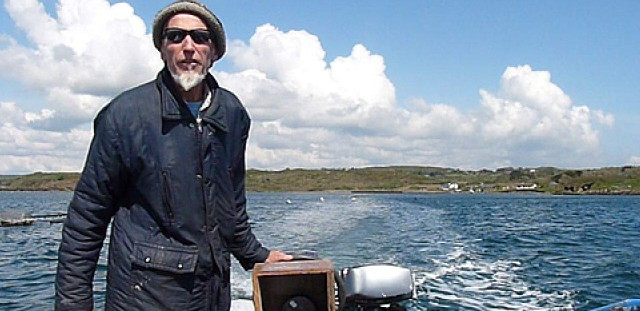Looking back on 10 years of sea vegetable farming in Roaring Water Bay, with a success rate of 9 out of 10 harvests, much experience has been gained, Milestones.
- The production of processed products – vegan sausages and burgers, puddings and more recently tapenades and condiments. At first locally, then into Cork city and later Dublin.
- Establishment of a Japanese Market for dried species, Along with mentoring by our customer, Itadaki Zen.
- Doing the food academy, under the umbrella of Musgraves and selling products in the Irish SuperValu chain.
- The setting up of our online shop.
It’s all been a steep learning curve and now we are entering a new phase. We are moving our farm to the pristine waters of Dunmanus bay where we have been granted a fresh licence to farm red, sea vegetables as well as brown, being pioneered in Europe by Borda Iscaigh Mara. The new site is deeper and the water fresher than the Roaring Water site which is reverting to Mussel spat production. There is a growing demand for affordable sea vegetables for multiple applications as well as food.
In Bantry bay we witnessed the license to mechanically harvest 1800 acres of pristine kelp beds off the coast of the Sheeps head and Bere Island, still being opposed by the Bantry Bay protect our native kelp forest campaign at present being challenged in the Supreme Court.
The company in question, synthesises a compound from kelp that is used as a substitute to antibiotics in pig food.
Farming kelp and other species is the environmentally friendly alternative to industrial harvesting of the sea bed, for the multiple derivatives of seaweed in food, cosmetics, industry and agriculture.
Kelp forests have been described as the lungs of the sea. Filtering the water, sequestering carbon out of the atmosphere and providing a habitat and nursery for many other forms of marine life. They must be preserved to maintain a healthy ocean, already under severe pressure from industrial pollution, plastic waste, human effluent and fish farming. Not only is seaweed farming a sustainable form of food production but actually an antidote to the pollution caused by human activities. Our policy is to have as small an environmental footprint as possible, using biodegradable materials on the farm as they become available, and to help maintain a habitat for the adjacent seal colony, the fish they feed on and the sea birds which nest on the shore. Wild harvesting is time consuming and hard work in the intertidal zone which only uncovers at low water spring tides. To help pay a living wage and compete with far eastern prices, farmed seaweed is cleaner, equally nutritious, less susceptible to heavy metals and more affordable.
As well as growing successfully, curing the weeds at the optimum conditions is necessary to get the umami taste .Once harvested we still dry the crop traditionally in the open air. This is laborious but allows visual inspection as each frond is seperated and results in a much better texture than seaweed that is artificially dried. As the ambient humidity is high, secondary drying can take place in a drying room to crisp it up.
There is no substitute I have found for this traditional process of curing,some of it goes into the smokehouse for curing like hijiki.
Then it needs milling to fine granules or flakes, vacuum packed and stored in barrels. Before being processed in our production kitchen into ready eat products.
